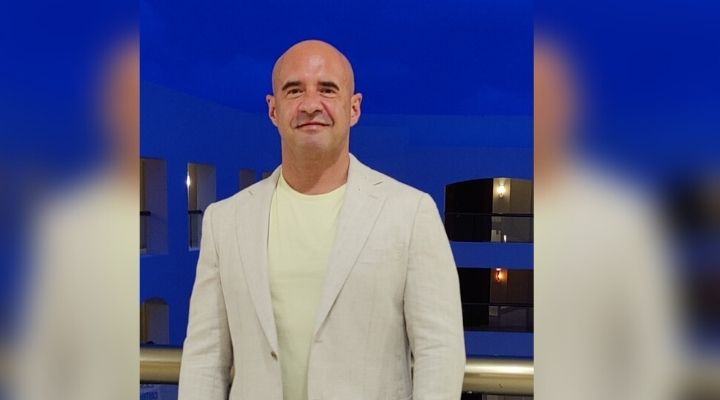Maxim Gorin is the CEO of MGME Consulting and LifeLine Ambulance. As a leader in the emergency medical services industry in the Los Angeles area, Gorin has not only fostered the growth of his company but has guided others’ success through his consulting firm.
Maxim Gorin left a budding career in financial services after September 11, 2001. The tragedy of that day inspired him to become an emergency medical services (EMS) provider, which led Maxim to become a certified EMT shortly after starting his company, LifeLine Ambulance.
In the early years of the business, he responded to calls, worked in dispatch, handled business development, and washed his three ambulances. So he understands the EMS industry and critical care transport from top to bottom. LifeLine Ambulance now has 70 vehicles and more than 300 employees, which serve hospitals and medical centers throughout Los Angeles and Orange County.
MGME Consulting helps fellow healthcare providers make their businesses more efficient and profitable, guiding them in their marketing efforts, business planning, and strategic growth.
Max Gorin credits his experience in the U.S. Army with his strong work ethic and ability to work as part of a team. As a tank crew member stationed in Korea, Gorin was on the frontlines of protecting the US. He has used his military experience as a jumping-off point leadership and team building in his industry.
As an influential EMS leader in southern California, Maxim’s highest priority is that LifeLine Ambulance brings community-centered care to its clients, protects its patients’ well-being, and maintains professional excellence for its employees.
How did you get started in this business?
Before 9/11, I worked in financial services. It was a fulfilling career, but I felt that something was missing. The tragic events of 9/11 inspired me to join the emergency medical services community because I was able to see how much support first responders needed. I started LifeLine Ambulance to serve my community and became an EMT because I felt that learning on the job was the best way to understand the EMS industry.
How do you make money?
LifeLine’s growth and success are based on developing strategic partnerships with hospitals, medical centers, and insurance providers. We also work directly with patients who don’t have insurance if they need to be transferred from one facility to another, like a hospital or a nursing home.
How long did it take for you to become profitable?
In general, it takes a while for ambulance services to become profitable. We have invested in state-of-the-art vehicles, specialized equipment, and expert training. It took LifeLine four or five years to see a return in our investments.
When you were starting out, was there ever a time you doubted it would work? If so, how did you handle that?
A new business always involves doubts and tough times before securing contracts with more than a few hospitals. It was also challenging to deal with insurance companies. There was a point I’d invested so much of my money into the business; I had little choice but to work through our problems while trying to increase profitability. However, I never got to the point where I thought we might have to close down or sell the business.
How did you get your first customer?
We entered into a contract with our first hospital shortly after we went into business. We didn’t have many relationships at first, so it took time to build them and gain their trust.
What is one marketing strategy (other than referrals) that you’re using that works really well to generate new business?
Online marketing and search engine optimization have been great for us. Many patients aren’t aware that they can choose which ambulance company they want to use. So, we do our best to educate consumers about these decisions before they are in desperate need.
What is the toughest decision you’ve had to make in the last few months?
Personally, the hardest decision I have had to make lately was to let an employee go. Our goals just weren’t matching up, and their dedication to customer service and satisfaction was lacking. It’s always a hard decision to make, and I try my best to avoid making mistakes.
What do you think it is that makes you successful?
My grit and determination have been the most significant factors in my success. I developed those in the Army, serving in Korea on a tank crew when I was young.
What has been your most satisfying moment in business?
Getting our first ambulance call nearly two decades ago was definitely a satisfying moment. It can be hard to know whether or not our company would have a chance to succeed until that point.
What does the future hold for your business? What are you most excited about?
Long term, we would like to continue expanding in southern California, maybe toward San Diego.
What business books have inspired you?
I recently picked up Adam Grant’s, Think Again: The Power of Knowing What You Don’t Know, which has been a great read! It has taught me to aim for more self-awareness and humility to recognize my knowledge blindspots and remain open-minded enough to continue learning in the EMS industry and beyond.
What advice would you give to your younger self?
I would tell myself to face any challenges head-on and to persevere. No one can stop you but you.
Are you willing to be a mentor? If so, how should someone contact you?
When the time comes, I think my business knowledge and, more so, my mindset to succeed could be valuable to a young entrepreneur or seasoned business vet. Because I’m still on my journey, personally and professionally, so it wouldn’t be fair for me to mentor someone right now. But who knows what the future holds?

